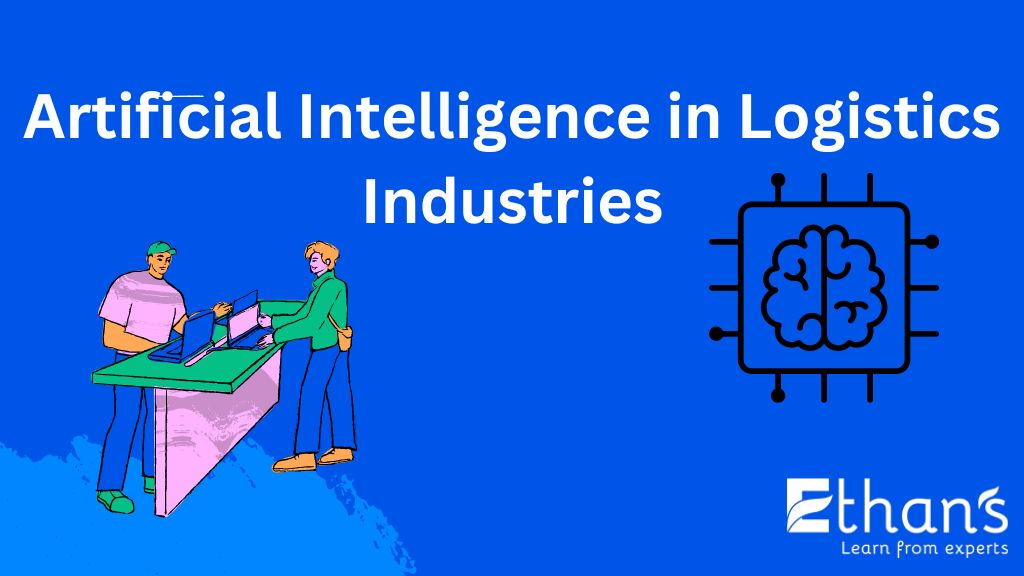Artificial intelligence (AI) is revolutionizing various industries, and the logistics sector is no exception. With the rapid advancements in technology, AI has become a driving force behind the optimization and automation of logistics processes. From improving efficiency to enhancing supply chain visibility, AI offers numerous benefits that enable logistics companies to stay competitive in today’s fast-paced business environment.
Understanding Artificial Intelligence in Logistics
Artificial intelligence refers to the simulation of human intelligence in machines programmed to perform tasks that would typically require human intelligence. It encompasses a range of technologies such as machine learning, natural language processing, computer vision, and robotics. In the context of logistics, AI algorithms and models enable systems to analyze large datasets, make informed decisions, and automate various tasks.
Applications of Artificial Intelligence in Logistics
Artificial intelligence finds applications across different aspects of the logistics industry, revolutionizing traditional practices. Some notable applications include:
Demand Forecasting: AI algorithms can analyze historical data, market trends, and external factors to accurately predict demand, helping logistics companies optimize their inventory levels and avoid stockouts or overstocking.
Route Optimization: AI algorithms can optimize routes by considering multiple factors such as traffic conditions, weather, and delivery schedules. This ensures that logistics companies can plan efficient routes for their vehicles, reducing fuel consumption and transportation costs.
Warehouse Automation: AI-powered robots and automated systems can streamline warehouse operations, from picking and packing to inventory management. This automation improves efficiency, reduces errors, and enhances order fulfillment speed.
Supply Chain Visibility: AI enables real-time tracking of shipments, providing end-to-end visibility throughout the supply chain. With AI-powered sensors and analytics, logistics companies can monitor inventory levels, anticipate disruptions, and provide accurate delivery estimates to customers.
Benefits of Artificial Intelligence in the Logistics Industry
Implementing AI in logistics yields several advantages for both logistics companies and their customers. The following benefits showcase the transformative impact of AI in the industry:
Improved Efficiency and Productivity
AI streamlines various processes within logistics operations, leading to improved efficiency and productivity. Automated systems can handle repetitive tasks, freeing up human resources to focus on more critical activities. This increased efficiency reduces costs, minimizes errors, and accelerates order processing and delivery times.
Enhanced Supply Chain Visibility
Artificial intelligence enables real-time monitoring and tracking of shipments, providing logistics companies with unprecedented visibility across the supply chain. By leveraging AI-powered analytics and sensors, companies can proactively identify bottlenecks, optimize inventory management, and ensure timely deliveries. This visibility enables better decision-making and enhances customer satisfaction.
Predictive Analytics and Demand Forecasting
AI algorithms can analyze vast amounts of historical and real-time data to generate accurate demand forecasts. This empowers logistics companies to optimize their inventory levels, improve demand planning, and reduce wastage. By accurately anticipating customer demand, logistics companies can achieve better inventory turnover, reduce costs, and improve overall operational efficiency.
Optimized Route Planning and Fleet Management
Artificial intelligence enables intelligent route planning and fleet management. By considering multiple factors such as traffic conditions, fuel consumption, and delivery schedules, AI algorithms can optimize routes for vehicles, reducing transportation costs and carbon emissions. Additionally, AI-powered predictive maintenance algorithms can detect potential vehicle issues, allowing for proactive maintenance and minimizing downtime.
Challenges and Limitations of Implementing AI in Logistics
While AI offers numerous benefits, its implementation in the logistics industry is not without challenges. It’s essential to address these challenges to fully leverage the potential of AI. Some notable challenges include:
Cost and Resource Constraints
Implementing AI technologies requires significant investments in infrastructure, software, and training. Many logistics companies, especially smaller ones, may face financial constraints in adopting AI solutions. Additionally, acquiring and retaining skilled AI professionals can be a challenge, given the scarcity of talent in the field. Build Your AI Career – Learn About Pune’s Best Course & Job Opportunities.
Data Security and Privacy Concerns
The logistics industry deals with sensitive customer data, including personal information and shipment details. The use of AI necessitates the collection, storage, and analysis of vast amounts of data. Ensuring robust data security measures and compliance with data privacy regulations is crucial to maintain customer trust and avoid data breaches.
Workforce Adaptation and Training
The integration of AI technologies in logistics operations requires the workforce to adapt and acquire new skills. This transformation may lead to job displacement or changes in job roles. Providing adequate training and upskilling opportunities to employees is essential to ensure a smooth transition and maximize the benefits of AI adoption.
Case Studies: Real-World Examples of AI in Logistics
Autonomous Vehicles and Drones
Autonomous vehicles and drones equipped with AI technology have the potential to transform last-mile delivery and transportation. Companies like Amazon and UPS are exploring the use of drones for faster and more efficient deliveries, especially in remote or congested areas. Autonomous vehicles powered by AI algorithms can enhance road safety, reduce fuel consumption, and optimize logistics operations.
Warehouse Automation
AI-driven robotics and automation systems are revolutionizing warehouse operations. Companies like Alibaba and Amazon employ robots in their warehouses to automate picking, packing, and sorting tasks. These robots work alongside human workers, improving efficiency, reducing errors, and increasing order fulfillment speed.
Demand Sensing and Inventory Management
Retailers leverage AI algorithms to sense customer demand patterns and adjust their inventory levels accordingly. Walmart, for example, uses AI to monitor social media trends, weather data, and sales history to anticipate demand surges and optimize inventory allocation across their stores. This approach helps minimize stockouts and improve overall inventory management.
Future Outlook and Trends in AI-Driven Logistics
The future of the logistics industry is heavily influenced by AI-driven technologies. Several trends are expected to shape the industry in the coming years:
Robotics and Automation
The use of robotics and automation in logistics is set to increase further. Collaborative robots (cobots) will work alongside human workers, performing repetitive tasks and lifting heavy loads. Warehouse automation will become more advanced, with the integration of AI-powered robots, automated guided vehicles (AGVs), and automated storage and retrieval systems (AS/RS).
Blockchain Technology
Blockchain technology is gaining traction in logistics, offering enhanced transparency, security, and traceability. Smart contracts and decentralized systems enable efficient and secure tracking of goods, simplifying processes such as customs clearance and document verification. Blockchain also facilitates seamless collaboration between different stakeholders in the supply chain.
Internet of Things (IoT) Integration
The integration of IoT devices with AI systems will enable real-time data collection and analysis, leading to improved decision-making. IoT sensors embedded in vehicles, warehouses, and products will provide valuable data on temperature, humidity, location, and condition. AI algorithms will analyze this data to optimize processes, enhance supply chain visibility, and enable predictive maintenance.
Conclusion
Artificial intelligence is transforming the logistics industry, revolutionizing traditional practices and unlocking new opportunities. From improving efficiency and productivity to enhancing supply chain visibility, AI offers numerous benefits. While challenges exist, proactive measures can address them, ensuring successful implementation and maximizing the potential of AI in logistics. As the industry continues to evolve, embracing AI-driven technologies will be essential for companies to stay competitive and meet the evolving demands of customers.





